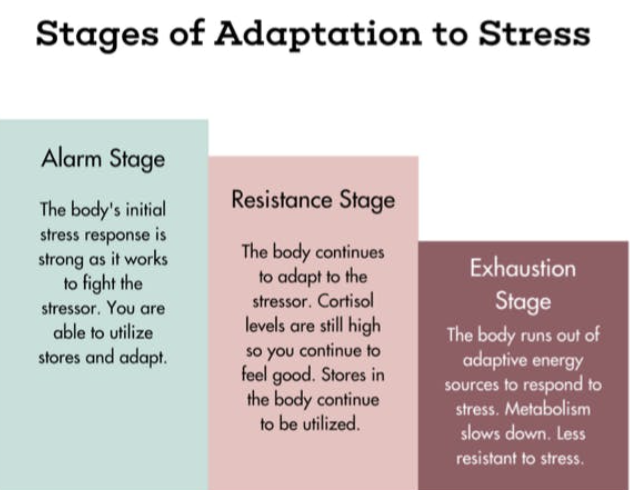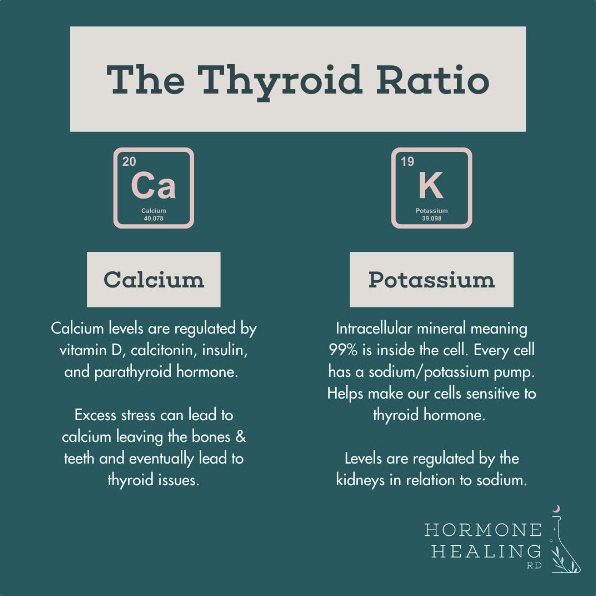One of my favorite tests to do with clients is hair mineral analysis. Not only can it be done in the comfort of your own home (or you can ask your hair dresser to cut it), but it’s also very affordable making it more accessible than most functional lab tests. Let’s dig into what exactly this test is and what you can learn from it.
What Is a Hair Mineral Analysis (HTMA)?
An HTMA test looks at over 37 different minerals and toxic metals. You take a small hair sample, put it in an envelope, and send it to the lab in the mail. It is looking at the last 3 months of information, which is unique when it comes to lab testing.
Since it is a hair test, it is measuring what is coming out in the hair (connective tissue), which shows nutrient status inside the cell. Blood work looks at nutrient status outside of the cell, which is tightly regulated by our bodies. Because of the amount it measures, you can take many different angles when looking at test results. The main reason I use this test is to see what stage of stress someone is in and how depleted their body is so that we can tailor nutrition, lifestyle, and supplement protocol that will best suit them.
Stress & HTMA
One of the first things I look at when I am reviewing an HTMA test is the stage of stress my client is in. Based on the first 4 minerals on the test, you can see if they are in a current, high stress output state or a more depleted state. The reason this is important is because we can feel like we are in the fight or flight state, but we could actually be very depleted. The alarm stage client is going to need a very different approach than the exhaustion stage client.

There is also an in inbetween phase where our bodies are trying to resist. We can only maintain the stressed out, high cortisol state for so long. Then eventually we start to release calcium from the cell (in the bones and teeth). This leads to calcium building up on iodine receptors and slowing down thyroid function. This is what happened to me. My thyroid labs were normal, but my mineral test showed slow thyroid function. When I corrected this imbalance, my thyroid function improved, which led to more progesterone and WAY better periods. Read more about this below!
Thyroid Health & HTMA
One of the main reasons I personally got into mineral testing was because I had all the symptoms of thyroid dysfunction, however, my lab results were only slightly out of range. This left me with no help from my doctor and confusion around how to restore proper thyroid function.
Eventually I learned about how copper and adrenal health can impact thyroid function, which lead me to mineral testing. Calcium and potassium are the most important minerals for assessing thyroid function and have been game changers for helping me improve mine.

𝐂𝐚𝐥𝐜𝐢𝐮𝐦 & 𝐘𝐨𝐮𝐫 𝐓𝐡𝐲𝐫𝐨𝐢𝐝
95% of calcium is in the bones and teeth. When calcium starts to move to out of the bones and teeth it causes problems.
The main issue being that calcium binds to iodine receptors and impact thyroid hormone use in the body.
I see high calcium on many HTMA tests and this means calcium isn’t where it should be (in the bones and teeth) and is leaving through your hair–showing us that it’s likely binding to iodine receptors and slowing down your thyroid function.
𝘚𝘺𝘮𝘱𝘵𝘰𝘮𝘴 𝘰𝘧 𝘩𝘪𝘨𝘩 𝘤𝘢𝘭𝘤𝘪𝘶𝘮: excessive thirst, muscle aches, memory loss, tendinitis, depression, fatigue, stiff joints, weakness, restless leg syndrome, constipation, kidney stones.
𝐏𝐨𝐭𝐚𝐬𝐬𝐢𝐮𝐦 & 𝐘𝐨𝐮𝐫 𝐓𝐡𝐲𝐫𝐨𝐢𝐝
Another important piece of the thyroid function puzzle is potassium.
Potassium is such an important mineral. It regulates blood pressures, maintains fluid balance and pH of the body, impacts nerve conduction the heart and dilates arteries.
Potassium also has a huge impact on thyroid health because it sensitizes our cell to thyroid hormone. When we don’t have enough this can also impair thyroid function.
𝘚𝘺𝘮𝘱𝘵𝘰𝘮𝘴 𝘰𝘧 𝘭𝘰𝘸 𝘱𝘰𝘵𝘢𝘴𝘴𝘪𝘶𝘮: allergies, constipation, fatigue, irregular heartbeats, low blood sugar, low blood pressure, muscle weakness, skin issues, water retention.
How To Get Tested
You can also get a deeper look at thyroid function and what stage of stress your body is in via the hair mineral test that I offer through my course . you will be able to purchase the test, learn how to interpret your results, and start improving your health!
Dig even deeper into hair mineral testing, how to do it, and the benefits in my podcast episode how to do a hair mineral test.
reminder: i’m currently taking on 1:1 clients. if you’d like to explore what it would be like to work together and if we are a good fit, fill out this form to get more details!
